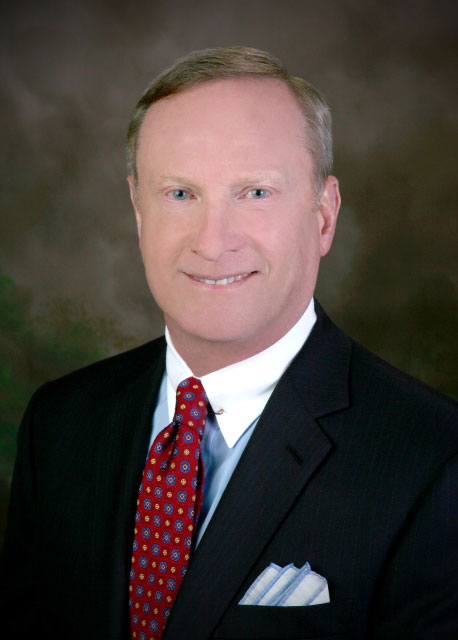The CFO-CEO pipeline: 5 finance leaders share their secrets
Looking to fill a vacant CEO desk? The perfect candidate might just be sitting down the hall in the finance department. A CFO’s familiarity with a leadership role and the company’s inner workings can make the transition a natural fit—but it’s not as simple as swapping one letter in the job title. “It’s a natural […]

Looking to fill a vacant CEO desk? The perfect candidate might just be sitting down the hall in the finance department. A CFO’s familiarity with a leadership role and the company’s inner workings can make the transition a natural fit—but it’s not as simple as swapping one letter in the job title.
“It’s a natural progression for a small percentage of CFOs,” says Chris Bull, co-founder and managing partner of McDermott & Bull, an executive search firm in California. Bull says that plenty of CFOs see themselves as financial leaders who don’t crave the added responsibility of the corner CEO office. But those who do “see the CFO role as a stepping-stone to becoming a CEO.”
Those who do make the move possess a big-picture mentality, strong leadership skills and mentors, Bull says. “The CFOs who have successfully made the leap have had strong CEOs they were able to emulate.”
We asked five CFOs-turned-CEOs for their top advice for finance leaders eyeing the top job, and hard-won lessons learned along the way.
Not too risky, not too timid
Before Arne Sorenson became president and CEO of Marriott in 2012, he served as the company’s executive vice president, chief operating officer, president of continental European lodging and CFO.
At the 2013 Wall Street Journal CFO Network conference, Sorenson said that a CFO is a natural choice to become a CEO because they are hardwired to look into every business aspect and to ask thoughtful questions. During his journey, Sorenson learned that both risk-averse finance leaders who closely guard the purse strings and risk-obsessed “deal junkies” can make problematic CEOs.
Wanted: transferrable skillsets
Fred Parrish held several financial roles before becoming CEO and founder of The Profit Experts. He served as a staff accountant, controller, executive vice president and CFO at public and private start-ups and multi-billion dollar corporations.
Throughout his 37-year career, Parrish has learned that “as a CFO, you are responsible for doing the analysis and making financial predictions. But the ultimate decision lies with the CEO.”
Once behind the CEO desk, former CFOs might not handle financial analysis or forecasting, but those talents are still valuable.
Gaining a new perspective
Some CFOs only temporarily switch roles, a learning experience that can make them better financial leaders. Errol Olsen, CFO of Absolute Software, served as interim CEO of the company from 2013 to 2014.
He wrote in CFO.com that while CEOs make decisions based on market and strategic perspectives, CFOs must consider shareholder value. That, Olsen wrote, added “an aspect of financial consideration within the CEO decision-making process. For example, acquiring market share does not lead to shareholder value unless there is a defined path to long-term profitability.”
But, while CEO, Olsen realized he couldn’t merely focus on numbers. “I’ve come to realize that not everything is binary. I’m learning to accept that and take some leaps of faith as well as make more decisions on an intuitive level.”
Embrace ambiguity

Irv Rothman, CEO of HPE Financial Services since 2002, has held multiple leadership roles throughout his career. He was the CFO of AT&T Credit Corporation from the mid-’80s (and later served as COO), and was the CEO of Compaq Financial Services.
At a 2014 dinner series, “From CFO to CEO: The Next Natural CFO Progression,” Rothman said that CFOs who want to become CEOs need to learn to work in the gray, without relying solely on the numbers.
“You have blind spots when you come from a finance career path,” he said. “You don’t do gray very well, and when you are CEO, there is no such thing as perfect information.”
Appeal to employees’ emotions

Gary Burnison is CEO of Korn Ferry, a global people and organizational advisory firm. Previously, he was the company’s CFO and COO.
He knows well the unexpected challenges financial leaders face when thrust into the chief executive role.
“CFOs tend to be very linear in their approach, which is consistent with a more narrowly defined position in which one is highly cognizant of rules and regulations,” he tells CFO. But CEOs “are less apt to tell people what to do and instead [likely to] guide them to what they should think about.”
CEOs can’t shirk their role as motivators, he says. “Motivating and inspiring people, displaying optimism in the face of challenges, and being highly attuned to others took on great importance,” Burnison says of his CEO responsibilities.





